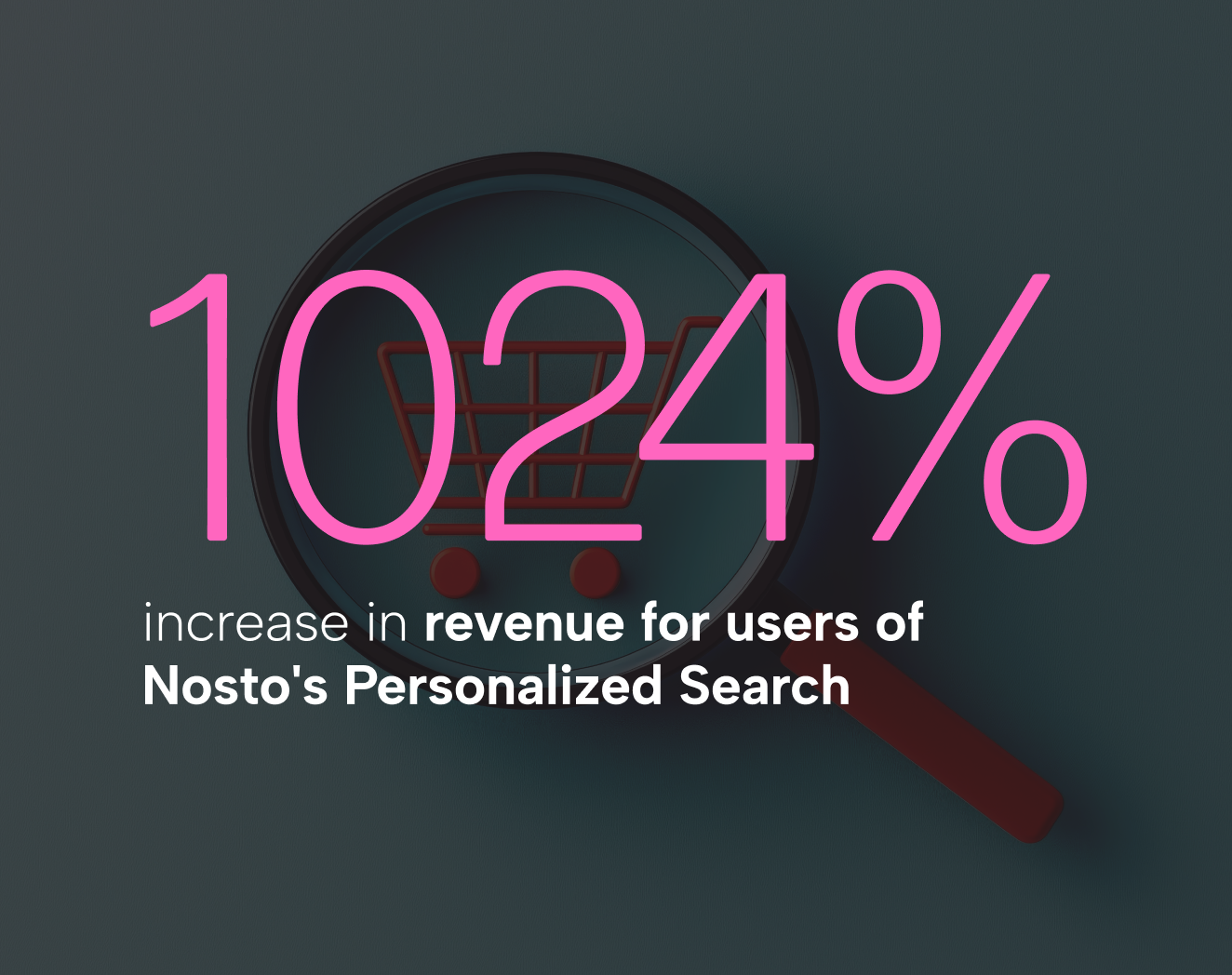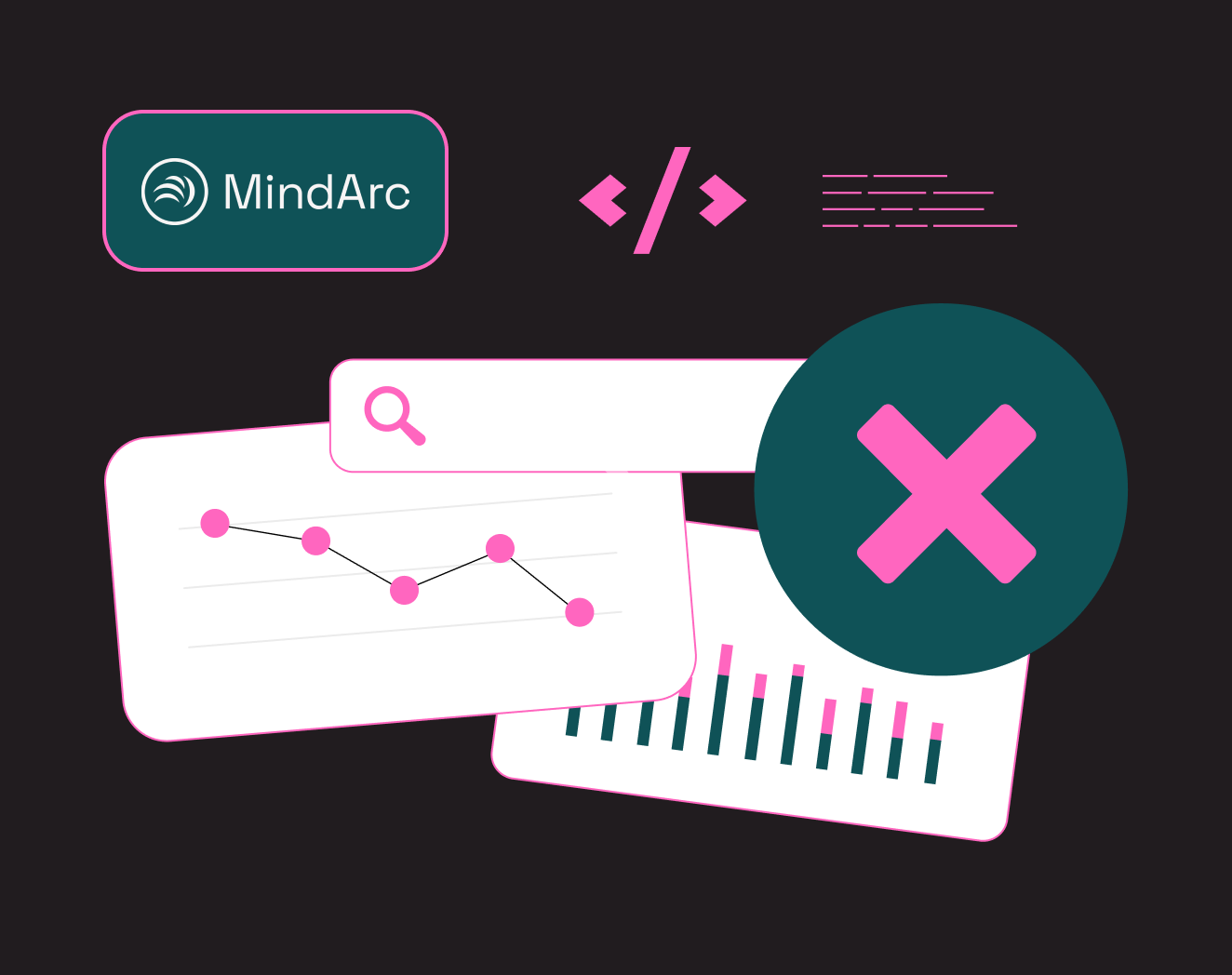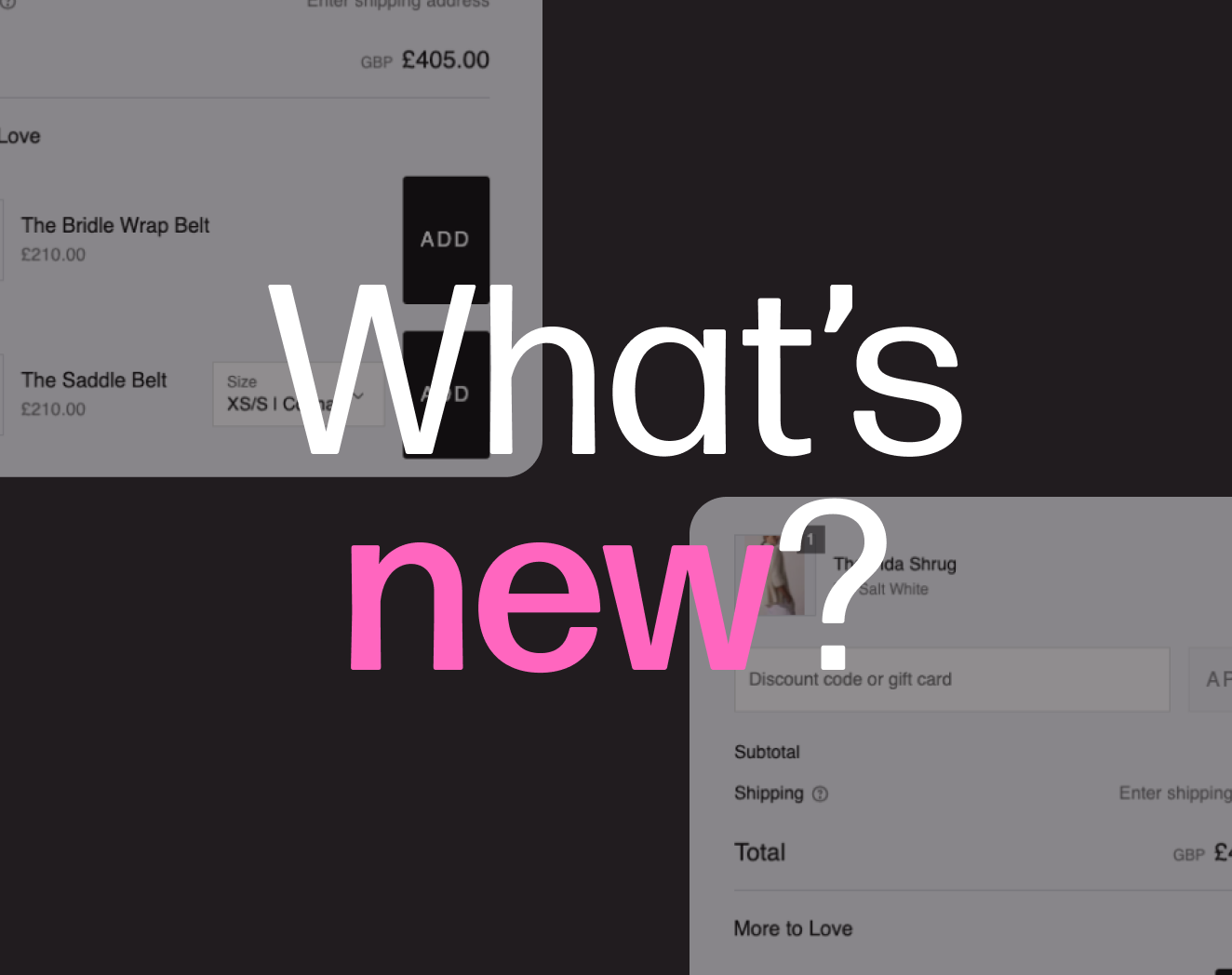Stackla Product Year in Review 2019
Here is a look back at the many ways the Stackla platform evolved in 2019—from tools and features to updated UIs and improved workflows. In doing so, we celebrate the progress of Stackla’s stellar product team (you guys are legends!) and help you discover some useful features you may have missed.
Here are all the 2019 product updates that helped marketers around the globe create authentic content experiences that perform at every touchpoint:
Improvements to existing functionality
Co-Pilot’s AI-powered curation & predictive recommendations
We were the first user-generated content (UGC) marketing platform to invest in building a deep learning framework, and two years later, Co-Pilot continues to be a leader in the space. In 2019, more significant investments were made from Stackla’s product team to refine, improve, and expand the service of this ground-breaking technology.
Stackla’s reimagined Digital Asset Manager
Marking another first in the UGC space, the Stackla Asset Manager was first released in 2018. It was built to go beyond the standard storage, cataloging, and distribution of traditional Digital Asset Managers (DAMs)—giving digital marketing teams the added power of real-time content discovery and recommendations.
The key features we added to the Stackla Asset Manager off the back of customer feedback include:
- Collections
- Asset management workflows
- Integration with multiple social media management platforms
- Improved refinement and sorting options
- Increased asset data including EXIF
- Visual recognition, pHash, and other visual attribution data
- New API endpoints to manage assets programmatically
Better connecting content to commerce
For years, we’ve enabled brands to drive commerce through content with product tags and ShopSpots.
In 2019, we expanded those capabilities by rolling out the following updates across all of our widgets:
- Product Feed Synchronization – This makes it possible to connect one or more XML Product Feed(s) to your stack(s). Any feeds based upon the Google Merchant or Facebook Product Catalog XML schema are supported and can be easily generated from all major ecommerce platforms.
- Tracking Pixel and reporting – This enables brands to attribute specific events, such as purchases, donations or sign-ups back to specific Tiles, Widgets and Product Tags within their Stack. These events feed into a specific reporting feed, which can provide transactional and object-specific insights and be tied in with your business intelligence (BI) tools. The new Commerce section within the Stackla Developer Portal contains instructions for leveraging the Tracking Pixel, Product Feed, and commerce reporting and ecommerce integrations.
- Product Variant, Groups and Availability Handling – We developed Product Variants and Groups to allow brands to show different pricing, descriptions, and more based on a defined market or language. Meanwhile, we began supporting Product Availability handling on UGC widgets, letting content dynamically display based on stock availability.
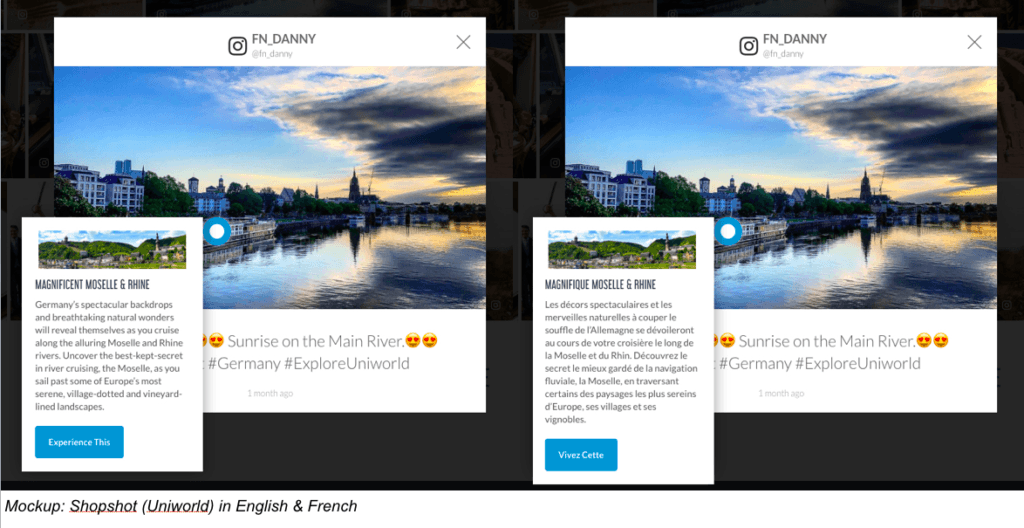
Direct Uploader improvements
Direct Uploader, which allows brands to collect rights-approved UGC directly via a website widget, is a differentiating feature of Stackla and a customer favorite.
In 2019, Direct Uploader grew to support higher quality image, video, and audio assets, whilst the addition of social integration for Direct Uploader allowed users to upload multiple visual assets directly from their Facebook and Instagram profiles—giving brands a golden opportunity to collect content from people with private accounts.
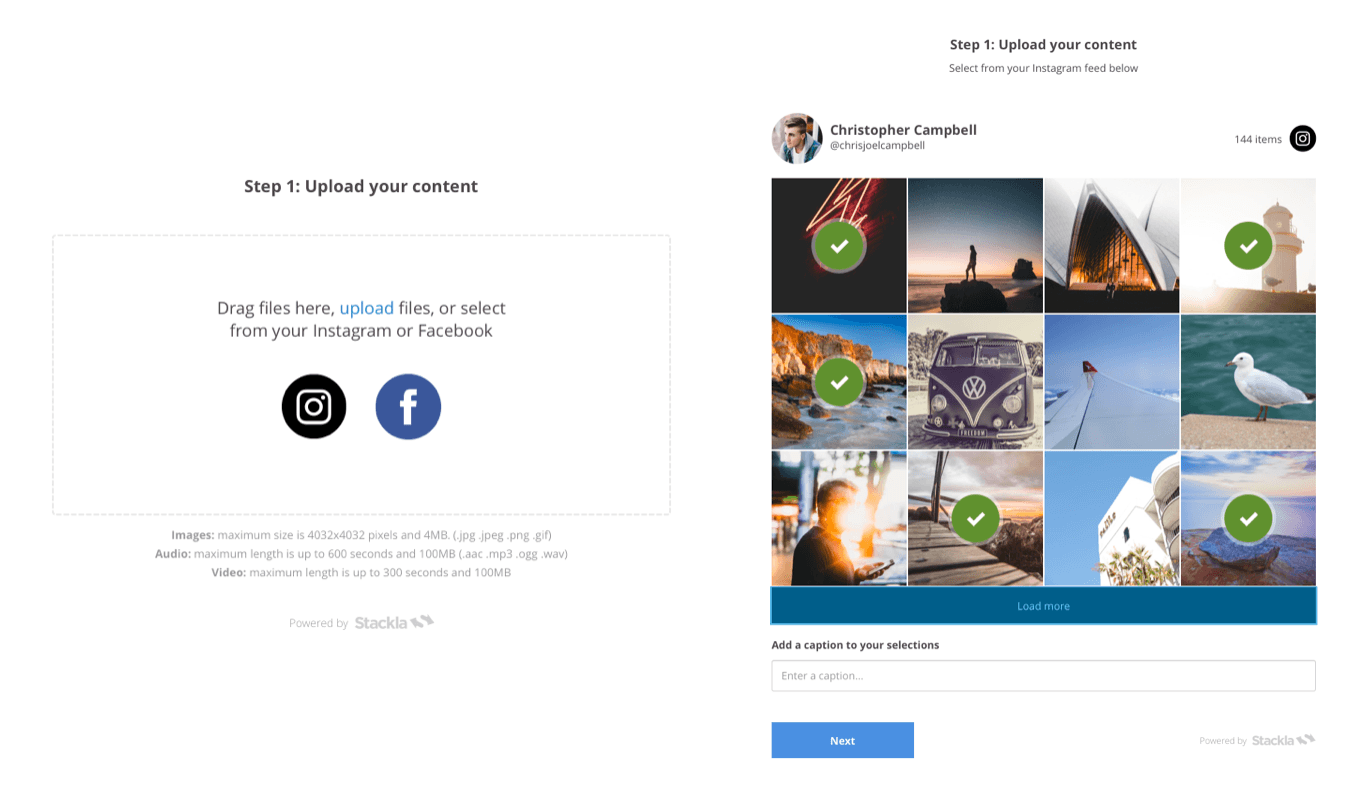
We also increased the video upload capacity for Direct Uploader, so our customers’ audiences can upload up to 5 minutes of full HD video.
Improved integrations
Stackla strives to make it easy for customers to integrate the platform into their other MarTech ecosystems. In 2019, we improved Stackla integrations with key MarTech solutions like Hootsuite, Zapier, and Microsoft Power Automate.
Rights management workflows
Robust Rights Management workflows are another defining capability of Stackla. As the leader in UGC rights management, we help automate the process of requesting, obtaining, and cataloging UGC rights from creators.
Continuously improving these workflows, Stackla has added Slack integrations (more on this below), supporting @mentions for Rights via Response, and more.
Enter ‘Send To’ webhooks
Webhooks are a powerful tool for connecting Stackla to the third-party technologies our customers use every day. In 2019, we made them even smarter.
We introduced ‘Send To’ webhooks, allowing our customers to configure options to be added to a tile or asset’s action menu in Stackla. Selecting the option on any UGC tile or asset then fires the relevant webhook—which can help create really neat flows, such as sending an asset to Google Drive, for example.
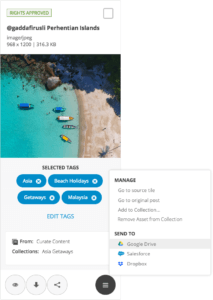
Two-Factor authentication, we got you
As two-factor authentication (2FA) became best-practice for securing web apps, we added support for this, ensuring compatibility with all common 2FA apps, such as Google Authenticator.
And while we’re on security, we’re pleased to have become Cloud Security Alliance (CSA) Security, Trust, Assurance and Risk (STAR) Certified this year.
Growing with Instagram
As Instagram expanded its capabilities in 2019, Stackla expanded its support for these new features and functionalities, including:
- Content aggregation from Instagram Creator Accounts – With the introduction of Instagram Creator Accounts (giving high-profile users more tools to control their online message and presence), Stackla began to support aggregation of all content posted from Creator Accounts—so customers never miss out on this high-quality content.
- Instagram’s Visual Recognition meets UGC tiles in Stackla – Along came simple visual recognition with the ability to detect things like the number of people in an image, and activities and objects displayed. In line with this, Stackla began aggregating these concepts within each Instagram post, and applying them to the UGC tiles.
- Support for IGTV – IGTV began soaring in popularity—particularly with brands and influencers who produce video content specifically for Instagram. As Instagram released new APIs, we integrated these into Stackla so customers can aggregate IGTV via our Chrome Extension or Create Tile feature.
Welcome aboard, Facebook video comments
We expanded our support for Facebook, too. Because people often comment on Facebook posts with videos, we decided to enable aggregation of this for Stackla. Now, any Facebook comment containing a video will automatically be converted into a Stackla video tile with an inline player in widgets and event screens.
Stackla’s Chrome Extension got smarter
Our highly-popular Chrome Extension provides a quick and easy way to perform popular Stackla actions in your browser.
In 2019, the Stackla Chrome Extension was updated to ensure increased compatibility across all Chromium Browser types. So, customers using the latest versions of Microsoft Edge, Opera, or other popular niche browsers like Brave, Yandex, or Chromium can perform the same functions that previously only Chrome Users enjoyed.
Plus, good news for Japanese speakers: we also released a Chrome Extension that translates the Stackla Admin, too.
Improved user groups
Another area we focused on in 2019 is user groups. These enable Stackla customers to set custom access controls based on the needs of specific roles and stakeholders within the platform.
This year, we expanded and improved upon the number of user group types and variations we support, based on feedback from our enterprise customers. Now, all stacks have a new User Access Group structure in place with clearer naming conventions and descriptions, so you can be sure everyone on your team has the access they need.
Better insights into Stackla-Powered UGC performance
If you use Stackla UGC widgets and Google Analytics, this one is for you. We welcomed a number of new Google Analytics Solutions Gallery Assets in 2019, that allow brands to more effectively segment the impact of Stackla. These include:
- Stackla Engagement & Conversion Segments – Allows brands to easily see the influence that Stackla widgets have on user sessions throughout their Analytics Property. Can also be applied to all other reports within Google Analytics.
- Stackla eCommerce Dashboards – Showcases a single snapshot of the influence of Stackla-powered UGC on your sales revenue and pipeline. Pro tip: use this in conjunction with the Stackla Engagement & Conversion Segments.
- Stackla Audience Definitions – Invites brands to create an audience group based upon those who actually interact with the Stackla widget. Then targets them via the Google Display Network (built to help you reach people while they browse their favorite websites).
Check out the Analytics section of our developer portal for more.
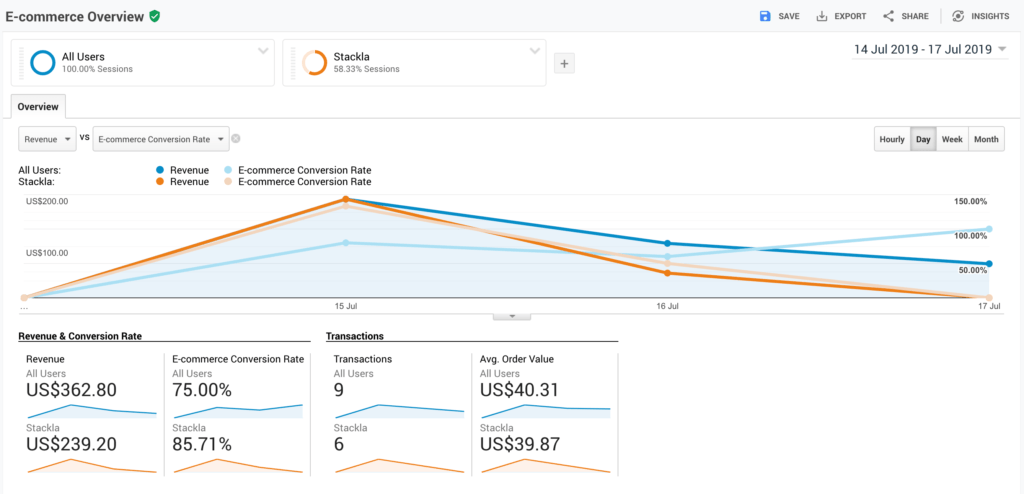
Product Feed improvements
There were also improvements to the Product Feed functionality in Stackla. We had helpful feedback from customers leveraging this feature. This led us to provide more comprehensive reporting related to successful and unsuccessful synchronizations, and more details around the last successful and unsuccessful runs of the process.
New tools and features
Automation Rules
With the release of Automation Rules in March, we gave all customers the ability to better automate tedious tasks by making it easy to create workflows with complex logic. Since its launch, we rolled out more than 100,000 different potential automation rules for customers—helping drive efficiencies across hundreds of companies and teams.
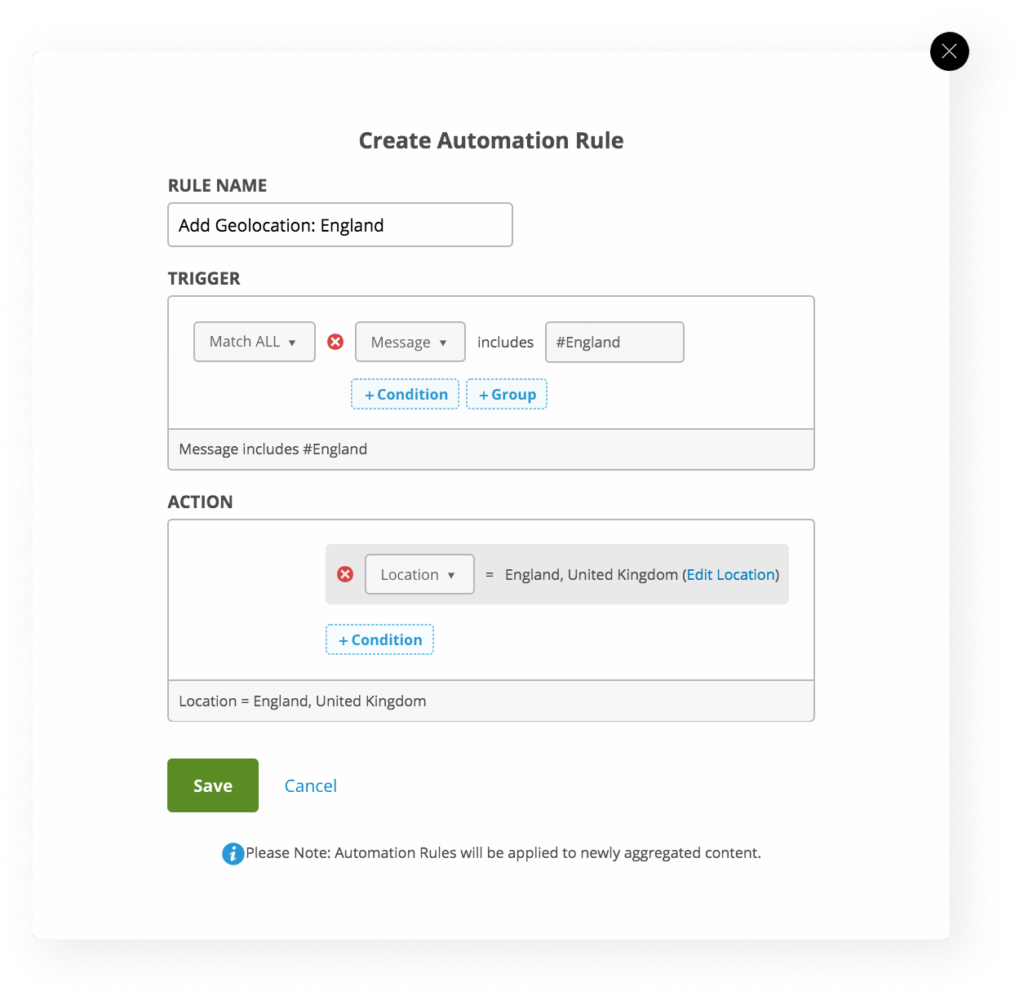
Universal Search
In 2019, we released a Universal Search tool that allows marketers to instantly search for a single keyword, hashtag, user, or more across the world’s top social networks (Instagram, Facebook, Twitter, YouTube, Weibo, and more) simultaneously.
When you run a search, the results are displayed from all major networks, then broken down by specific term types, such as mentions, users, hashtags and keywords. All the results are displayed by relevance based on various factors, like how much content is posted on that channel or using that hashtag/keyword, etc.
In addition to providing multi-network results for the term you’ve entered, Stackla’s Universal Search goes one step further to offer other suggested terms relevant to your original search. For example, in the video above, we entered the keyword “aatkings” and the hashtag #smileaatkings was suggested for Instagram.
You’ll then have the power to preview all suggested term results or manually select which results you’d like to preview before individually or batch selecting to turn on (and edit) each term within your stack.
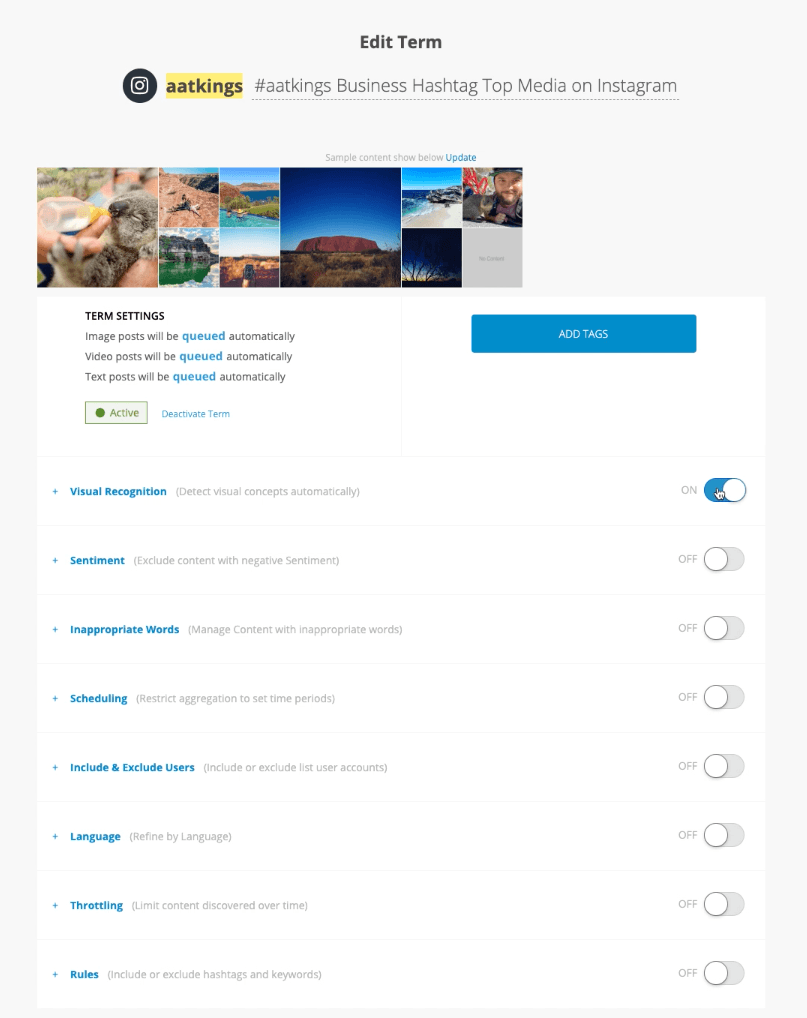
If you’re familiar with editing terms in Stackla, you’ll notice you can still make all the same great granular edits, they’re just in a cleaner, more user-friendly format now. The ability to refine each of your terms settings for things like visual recognition, sentiment and language controls, automatic safe-for-work filtering, user inclusion and exclusion lists and more, ensures that you’re always aggregating more of the content you want and less of the content you don’t.
Only want the best content from Instagram? Or want to find content from a specific location on Twitter? No problem! You also have the flexibility to choose a single network to search within to get top results and the most relevant term suggestions.
With Stackla’s updated content discovery interface and new Universal Search, you can spend less time setting up your terms and more time getting more of the authentic, high-quality content you need to fuel all your marketing activities.
Single Tile Embed
If you need a single piece of UGC to be featured on a blog or landing page, we have you covered. In 2019, we began supporting responsive Single UGC Tile Embeds via Stackla so customers can feature UGC beyond widgets.
Slack integration
Slack is now an integral part of the day-to-day operations in many organizations, so we built a new Slack Integration to better integrate Stackla with daily workflows.
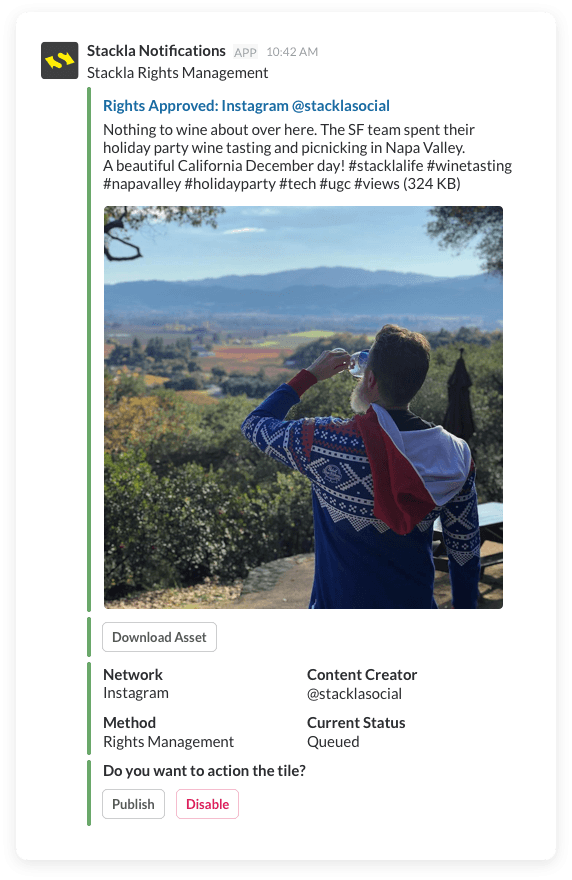
With Stackla’s Slack integration, marketing teams can receive real-time notifications—taking direct action on newly rights-approved content without ever having to leave the Slack App. Features include:
- Instant notifications – When a content creator approves your UGC rights request, our Slack integration sends a notification to the Slack channel(s) of your choice. You’ll see the posted media, caption, network and current moderation status right there in the message.
- Easy asset downloads – When a rights request is approved by the content creator, the image or video is sent directly to your Stackla Asset Manager. As part of our integration, you can download a high resolution version of that asset directly from the notification in Slack.
- Direct publishing – We also allow you to configure your Stackla Slack notifications to include publish, queue, and disable buttons—meaning your Slack channel members can help moderate freshly approved content from directly within Slack.
Refining first-time user experience
Getting up and running with new software should be exciting and not a headache. In 2019, we created a new user onboarding workflow to make onboarding with Stackla easier and faster. This way, newbies can set up their first Stack and kick-start their UGC implementation strategy.
Stackla’s quick start workflow guides new users through the process of connecting social accounts, adding official channels as terms, setting up Rights via Response, inviting other users, and adding the Stackla Chrome extension. All new accounts receive these guides, which are also auto-enabled on any existing accounts that don’t have terms created.
Organic Influencers
Finally, Stackla’s greatest product launch of 2019, the Organic Influencer solution!
With Organic Influencers, brands can easily find, engage, motivate, and reward their best brand advocates and build loyal communities that help provide rich libraries of authentic, high-quality content that can deliver real ROI.
We created this tool because we believe the entire influencer industry is shifting away from macro-influencer to micro-influencers—making Organic Influencers an ideal solution and an important part of any brand’s future digital strategy.
Here’s to a great year of building and improving products to make marketers’ lives easier (and even more fun)!

